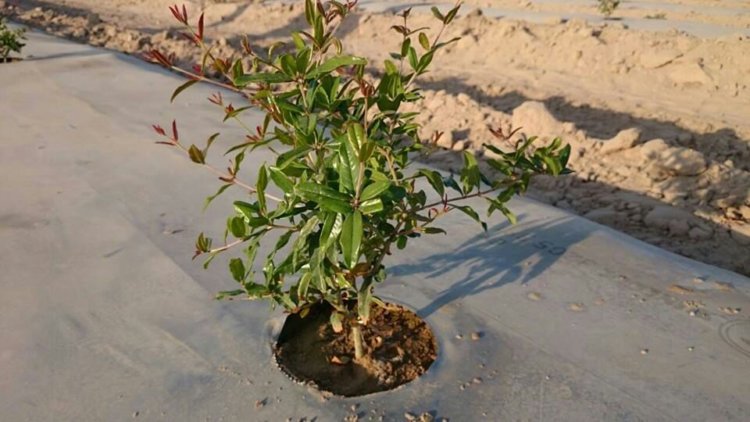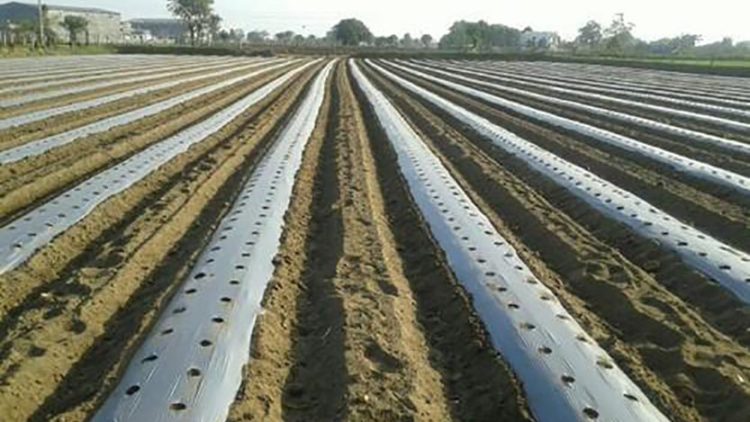What is Plastic Mulch and its uses and benefits?
Plastic mulch is an item used, in an equivalent to mulch, to suppress weeds and conserve water in crop production and landscaping. You can find a variety that is wide of that works extremely well, they include organic options such as for example bark chips, grass clippings, and straw, and inorganic options. The application of plastic mulch alters soil temperature. Dark mulches and clear mulches applied into the soil intercept sunlight warming the soil allowing earlier planting in addition to encouraging faster growth early right into the growing season. White mulch film reflects heat through the sun effectively reducing soil temperature. This lowering in temperature might help establish plants in mid-summer when cooler soil might be required.
The story of plastic mulch begins into the 1950s. Throughout that period, Dr. Emery Emmert associated with the University of Kentucky experimented with using polyethylene film as a cover for greenhouses rather than glass. Emmert then extended this Plastic mulch application to vegetable production, discovering that Plastic mulch film helped warm the soil. His work lead straight to the usage of plastic as organic mulch material in commercial plant production into the 1960s as a Plastic Mulch Films. Since that time, its adoption has grown to become widespread.
Plastic mulch is popular since it provides a quantity of advantages over other varieties.
1) There is certainly a circumstance for which an increased temperature may possibly not be desired. If plants are increasingly being produced throughout the summer, they just do not require more heat. In this case, it really is ideal to make use of a white plastic mulch, because color reflects heat rather than absorbing it.
2) Weed Control – Sunlight helps foster the rise of weeds by compacting soil, plastic mulch blocks sunlight from obtaining the soil across the plant, thus preventing weeds from appearing. Black Plastic Mulch as well as other non-transparent Plastic film in particular are ideal for this purpose, blocking a broader array of weeds than organic mulches. The existence of fewer weeds also reduces the requirement for physical cultivation, ultimately causing less root damage.
3) Decrease in the leaching of fertilizer – The application of drip irrigation along with plastic mulch creates into reduce leaching of fertilizers. Using drip irrigation takes out the usage of flood and furrow irrigation that applies large volumes of water towards the soil which often has a tendency to remove nitrogen as well as other nutrients and vitamins to depths underneath the root zone. Drip irrigation can be applied lower amounts of water with fertilizers inserted and therefore these fertilizers are placed on the basis zone as required. And also this reduces the quantity of fertilizer required for sufficient plant growth in comparison to circulate fertilization.
4) improved Crop Quality – Plastic mulch can help crops avoid straight contact with soil, this results in the plants being better, which is suitable for fruits such as berries. It also works to prevent rot as mud from irrigation is not splashed on the crops.
After the field is ready, the outer lining is ready for plastic mulch application. In the industry, the best way to work on this process is by the application of a mechanical plastic mulch layer also called plastic mulch film laying machine. The product rolls within the field, laying down a sheet of plastic mulch throughout the plant beds. The plastic mulch film could be flat level utilizing the soil surface) or raised. The machine also laying drip irrigation pipe by placing drip tubing underneath the plastic mulch throughout the laying process. Drip irrigation is effective for plastic mulching since it provides water and fertilizer towards the soil in smaller amounts, preventing an excess of the previous and leaching of this latter.




